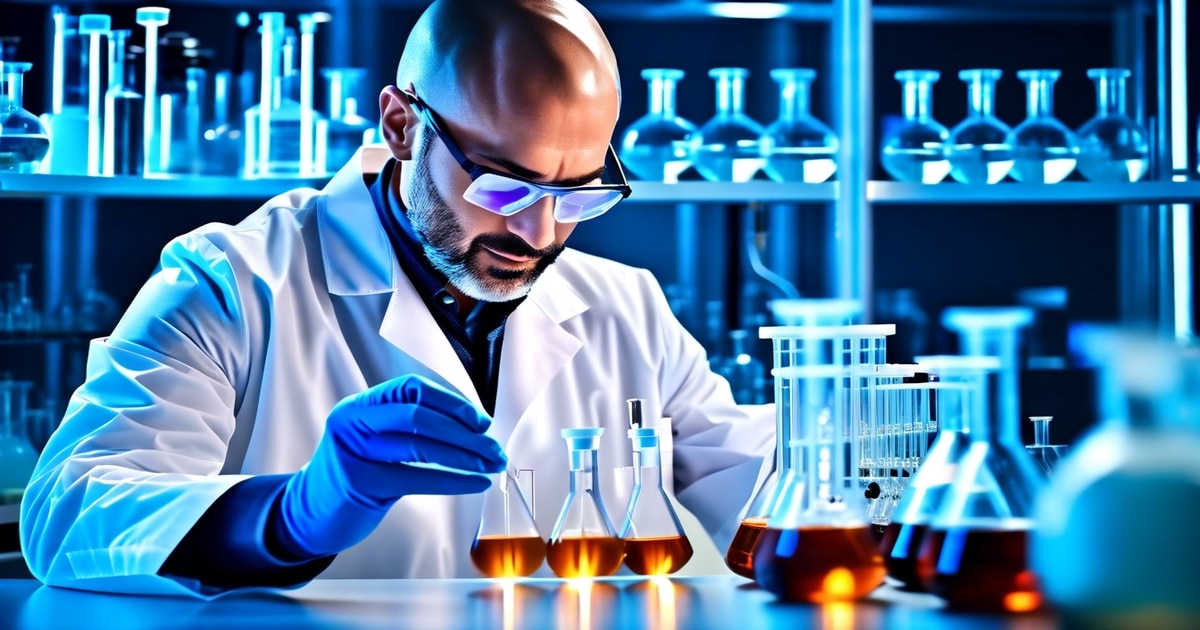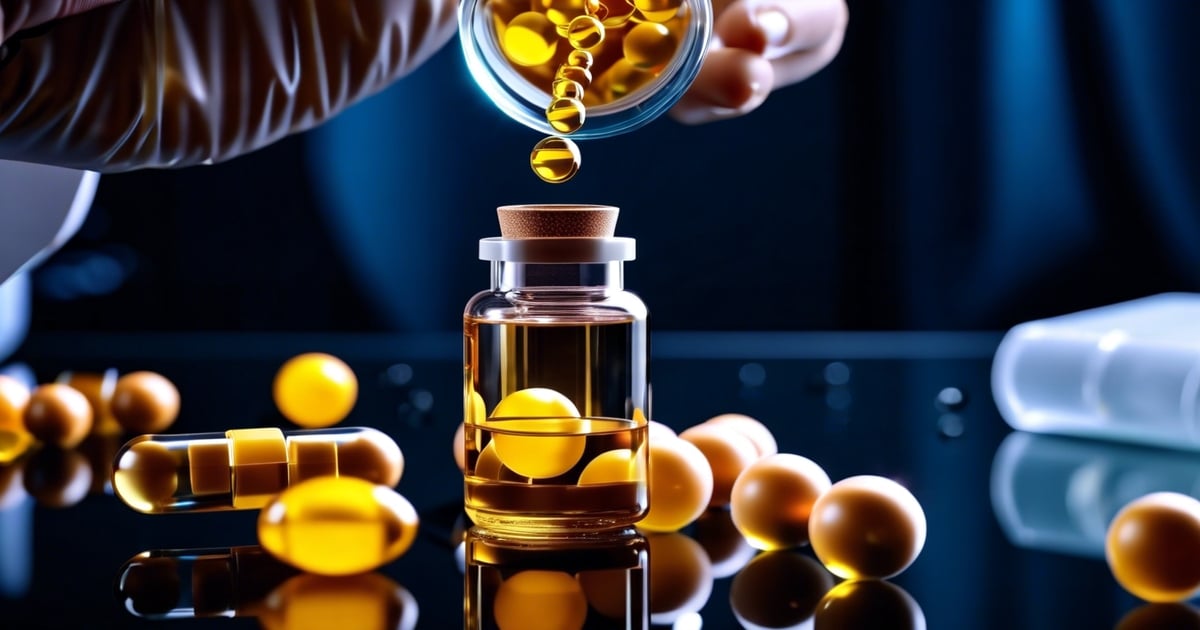Key Takeaways
- Consider Consulting a Healthcare Provider: Before incorporating Vitamin B17 into your cancer treatment plan, consult a healthcare provider to discuss potential benefits and risks.
- Focus on a Balanced Diet: Aim to consume various foods rich in essential nutrients, including fruits, vegetables, nuts, and whole grains, to support overall health and well-being.
- Stay Informed: Stay updated on the latest scientific research and findings regarding Vitamin B17 and its potential impact on cancer treatment.
- Exercise Caution: Be aware of the risks and side effects associated with Vitamin B17 consumption, including cyanide toxicity, and make informed decisions based on reliable information.
- Seek Support: Connect with support groups or healthcare professionals specializing in cancer care to navigate treatment options and make well-informed choices.
- Empower Yourself: Take an active role in your health journey by educating yourself about different cancer treatments and making decisions that align with your values and goals.
Let’s look into the link between cancer and vitamin B17. In the 1950s, a scientist proposed that this vitamin could combat cancer cells. However, controversy surrounds this concept due to limited scientific evidence supporting its effectiveness against cancer. Despite this, some alternative medicine practitioners advocate for its potential benefits in cancer treatment. Today, discussions continue whether vitamin B17 truly holds anticancer properties or if it remains a contentious topic with inconclusive results.
Understanding Cancer and Its Causes
Vitamin B17 and Its Controversy
Vitamin B17, also known as amygdalin, is a substance found in the seeds of fruits like apricots, peaches, and bitter almonds. Some believe vitamin B17 can prevent or treat cancer due to its ability to release cyanide when metabolized by the body. However, there is no scientific evidence supporting these claims.
- Pros:
- Rich in antioxidants.
- May have some health benefits if consumed as part of a balanced diet.
- Cons:
- Cyanide toxicity risk.
- Lack of scientific proof for its anti-cancer properties.
The Role of Diet in Cancer Prevention
A healthy diet rich in fruits, vegetables, whole grains, and lean proteins can help reduce cancer risk. While some foods, like fruits containing vitamin B17, are believed to have anti-cancer properties by groups outside mainstream science, it’s essential to rely on scientifically proven methods for cancer prevention.
- Eat a variety of colorful fruits and vegetables daily.
- Limit processed meats and sugary beverages.
- Maintain a healthy weight through regular exercise.
- Consult healthcare professionals before making significant dietary changes related to cancer prevention strategies.
What is Vitamin B17

Source and Role
Vitamin B17, also known as amygdalin, is found in the seeds of fruits like apricots, cherries, peaches, plums, and apples. When broken down, amygdalin converts to cyanide within the body. Some believe that this compound can help fight cancer cells.
- Found in seeds of fruits
- Converts to cyanide
Controversy and Risks
There is controversy surrounding the use of vitamin B17 as a cancer treatment due to its cyanide content. While some advocate for its potential benefits against cancer cells, others warn about the risks associated with consuming substances that release cyanide in the body.
- Controversial cancer treatment
- Risks related to cyanide exposure
The History of Vitamin B17 in Cancer Treatment
Discovery and Popularity
Vitamin B17, known as amygdalin or laetrile, gained attention for its potential anti-cancer properties. Amygdalin is found in the seeds of fruits like apricots, peaches, and bitter almonds. In the 1950s, Dr. Ernst T. Krebs Jr. popularized laetrile as a cancer treatment option.
- Pros:
- Natural substance
- Easily accessible from certain fruits’ seeds
- Cons:
- Lack of scientific evidence supporting its effectiveness
- Potentially toxic when taken in large amounts
Controversies and Legal Issues
The use of vitamin B17 in cancer treatment sparked controversies due to conflicting views on its efficacy and safety. While some alternative medicine practitioners advocate for its use, mainstream medical professionals caution against it due to the lack of conclusive scientific studies proving its benefits.
- Despite being banned by the FDA for cancer treatment due to potential cyanide poisoning risks.
- Some clinics still offer laetrile treatments outside conventional medical settings.
- Legal battles have ensued over the right to access this controversial treatment option.
Scientific Research on Vitamin B17 and Cancer

Effectiveness of Vitamin B17 in Cancer Treatment
Studies have shown that Vitamin B17 can potentially inhibit cancer cell growth, but more research is needed. Some sources claim it can target cancer cells specifically without harming healthy cells.
Research suggests that Vitamin B17 may help reduce tumor size due to its ability to release cyanide only at the tumor site. However, experts emphasize the importance of consulting healthcare providers before using it as a treatment.
- May inhibit cancer cell growth
- Could target cancer cells selectively
- Potential reduction in tumor size
Controversies Surrounding Vitamin B17
Despite some positive findings, there is controversy around Vitamin B17 as an alternative cancer treatment. Critics argue that laetrile (a form of Vitamin B17) can be toxic and even lethal if not used properly.
The FDA has not approved Vitamin B17 for treating cancer due to safety concerns and a lack of substantial evidence supporting its efficacy. It’s crucial for individuals considering this treatment to weigh the risks carefully.
- Controversial as a cancer treatment
- Laetrile toxicity concerns
- Lack of FDA approval for cancer treatment
How Vitamin B17 Works in the Body
Role of Vitamin B17
Vitamin B17, also known as amygdalin, is believed to work against cancer cells by releasing cyanide when it comes into contact with an enzyme called beta-glucosidase. This enzyme is found in large quantities in cancer cells. The release of cyanide from vitamin B17 is thought to be toxic specifically to cancer cells while leaving healthy cells unharmed.
- Pros:
- Believed to target and destroy cancer cells.
- Considered a natural substance found in various foods like seeds, nuts, and fruits.
- Cons:
- Controversial due to limited scientific evidence supporting its effectiveness against cancer.
- Cyanide toxicity risk if consumed excessively.
Interaction with Cancer Cells
When vitamin B17 enters the body through foods or supplements, it may selectively target cancerous cells due to their higher beta-glucosidase levels. The release of cyanide near these specific enzymes could lead to damage or destruction of the malignant cells. However, this mechanism remains debated within the scientific community regarding its efficacy and safety for treating cancer.
- Consumption: Consuming foods rich in vitamin B17, such as apricot kernels or bitter almonds, can introduce amygdalin into the body.
- Metabolism: Once inside the body, amygdalin interacts with enzymes present in both healthy and cancerous tissues but purportedly has a more significant impact on malignant cells.
Potential Benefits of Vitamin B17 for Cancer Patients
Anti-Cancer Properties
Vitamin B17, known as amygdalin, has been studied for its potential anti-cancer properties. It is believed to work by releasing cyanide in cancer cells, targeting them specifically without harming healthy cells. This targeted approach is appealing because it may help reduce the side effects often associated with traditional cancer treatments.
Studies have shown that Vitamin B17 might inhibit tumor growth and spread in some cancers. Research suggests that it could be beneficial in treating certain types of cancer, such as prostate, lung, and breast cancer. While more studies are needed to confirm these findings, the initial results are promising.
Immune System Support
Apart from its potential anti-cancer effects, Vitamin B17 may also play a role in supporting the immune system. A strong immune system is crucial for fighting illnesses and maintaining overall health. By bolstering immune function, Vitamin B17 could potentially help cancer patients better cope with their condition and treatments.
- Pros:
- Targeted approach to killing cancer cells
- Inhibition of tumor growth and spread
- Immune system support
Risks and Side Effects of Vitamin B17
Potential Health Risks
Vitamin B17, or amygdalin, can be toxic when consumed in high doses. Some sources of this vitamin contain cyanide, which is poisonous to the body. Consuming foods or supplements rich in vitamin B17 may lead to cyanide poisoning, causing symptoms like nausea, vomiting, headache, dizziness, low blood pressure, and even liver damage.
Consuming apricot kernels or other foods high in vitamin B17 could pose a risk due to their cyanogenic glycoside content. These compounds can release cyanide when metabolized by the body, and ingesting large amounts of them can have severe consequences for health.
Lack of Scientific Evidence
Despite claims suggesting that vitamin B17 has anti-cancer properties and benefits for cancer patients, insufficient scientific evidence supports these assertions. The FDA does not approve the use of vitamin B17 for treating cancer due to safety concerns related to its potential toxicity.
- Consumption of foods containing vitamin B17 should be moderate.
- Seek medical advice before incorporating supplements with vitamin B17 into your diet.
Dietary Sources of Vitamin B17
Natural Food Sources
Vitamin B17, known as amygdalin, is naturally found in various foods. Apricot seeds are one of the most well-known sources containing high levels of this vitamin. Other natural sources include bitter almonds, apple seeds, and peach pits.
Consuming these foods can provide a natural intake of vitamin B17, which some believe may have health benefits. However, it’s essential to be cautious with the consumption of amygdalin-rich foods due to potential cyanide toxicity risks associated with high doses.
Supplementation Considerations
While some individuals choose to obtain vitamin B17 from natural food sources like apricot seeds or supplements derived from apricot kernels, it’s crucial to approach supplementation carefully. The potential risks associated with cyanide poisoning highlight the importance of moderation and awareness when incorporating vitamin B17 into your diet.
When considering supplementation options for vitamin B17, consulting with a healthcare provider or nutritionist is advisable to ensure safe consumption levels. Awareness of pre-existing health conditions or medications that could interact negatively with amygdalin is crucial for overall well-being.
Closing Thoughts
You’ve delved into the intricate world of cancer and Vitamin B17, uncovering their histories, benefits, risks, and more. The research paints a complex picture, showing potential and caution in utilizing Vitamin B17 for cancer treatment. Consult healthcare professionals before making significant dietary changes or treatment decisions. Your health is precious, and informed choices are crucial.
In your quest to understand cancer treatments, keep an open mind and explore new developments. Stay informed, stay curious, and most importantly, take care of yourself. Your journey towards better health is a marathon, not a sprint. Keep learning, keep growing, and remember that every step you take matters. Embrace the power of knowledge in your health decisions.
Frequently Asked Questions
Is Vitamin B17 an effective cancer treatment?
Vitamin B17 has not been scientifically proven to be an effective cancer treatment. While some studies suggest potential benefits, more research is needed to confirm its efficacy.
Can Vitamin B17 consumption lead to any risks or side effects?
Consuming Vitamin B17 can pose risks and side effects such as cyanide poisoning, especially when taken in high doses. It’s crucial to consult with a healthcare professional before incorporating it into your diet.
What are the dietary sources of Vitamin B17?
Dietary sources of Vitamin B17 include apricot seeds, bitter almonds, apple seeds, and certain berries like elderberries. However, it’s essential to be cautious with these sources due to their cyanide content.
How does Vitamin B17 work in the body against cancer?
Some proponents believe vitamin B17 targets and kills cancer cells while leaving healthy cells unharmed. However, the exact mechanism of action in relation to cancer cells has not been conclusively established through scientific research.
Should I rely solely on Vitamin B17 for treating my cancer?
It’s not advisable to rely solely on Vitamin B17 to treat cancer. Consult with healthcare professionals about evidence-based treatments like chemotherapy, radiation therapy, surgery, or other complementary therapies that have been scientifically proven effective against various types of cancer.

